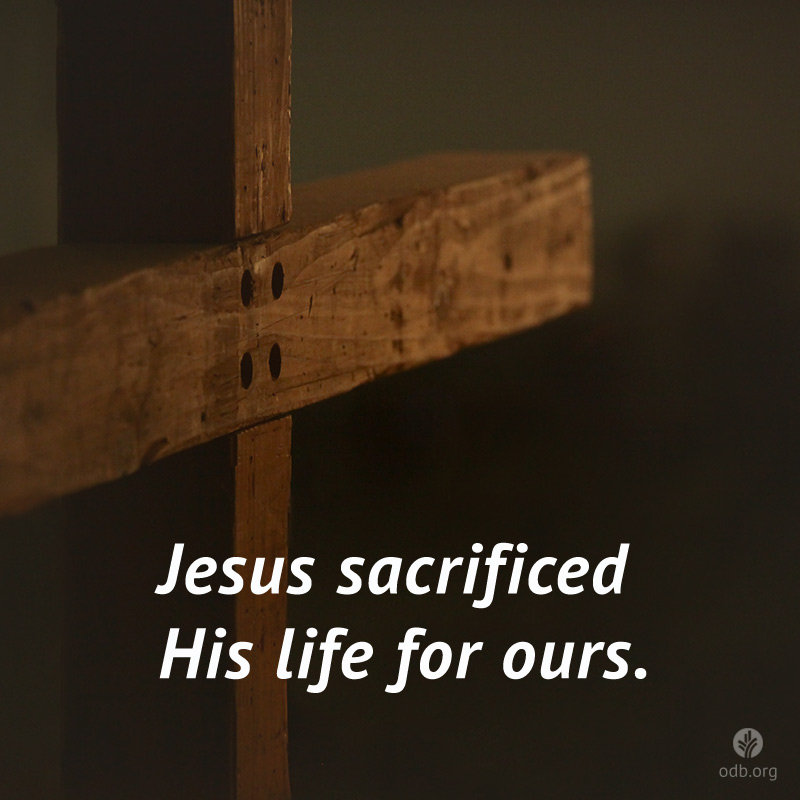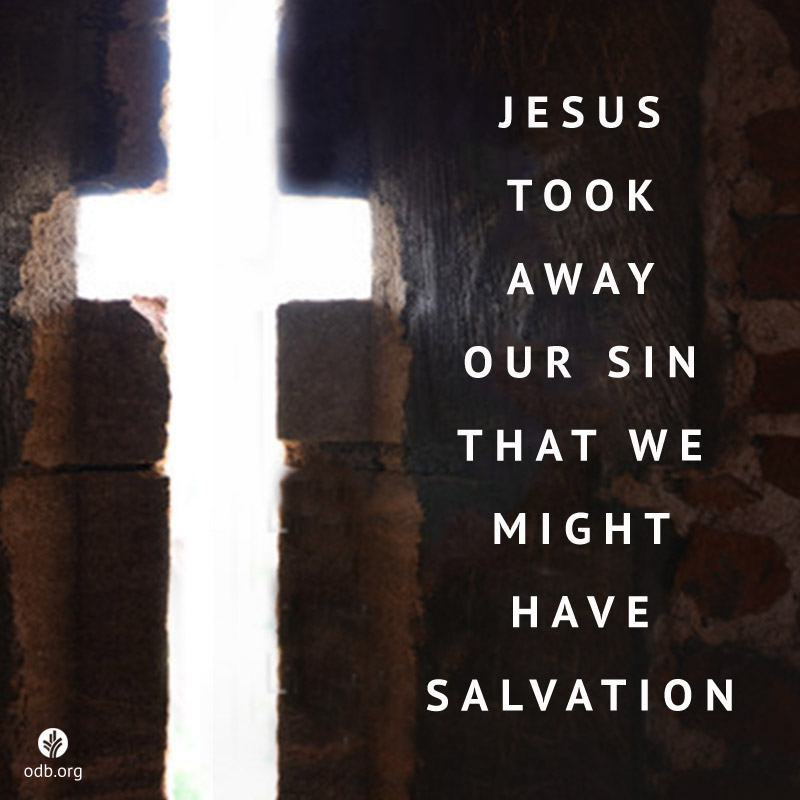
Never Forsaken
Russian writer Fyodor Dostoyevsky said, “The degree of civilization in a society can be judged by entering its prisons.” With that in mind, I read an online article describing “The Top 8 Deadliest Prisons in the World.” In one of these prisons every prisoner is held in solitary confinement.
We are intended to live and relate in relationships and community, not in isolation. This is what makes solitary confinement such a harsh punishment.
Isolation is the agony Christ suffered when His eternal relationship with the Father was broken on the cross. We hear this in His cry captured in Matthew 27:46: “About three in the afternoon Jesus cried out in a loud voice, ‘Eli, Eli, lema sabachthani?’ (which means, ‘My God, my God, why have you forsaken me?’).” As He suffered and died under the burden of our sins, Christ was suddenly alone, forsaken, isolated, cut off from His relationship with the Father. Yet His suffering in isolation secured for us the promise of the Father: “Never will I leave you; never will I forsake you” (Heb. 13:5).
Christ endured the agony and abandonment of the cross for us so that we would never be alone or abandoned by our God. Ever.
East Meets West
When students from Southeast Asia met a teacher from North America, the visiting instructor learned a lesson. After giving his class their first multiple-choice test, he was surprised to find many questions left unanswered. While handing back the corrected papers, he suggested that, next time, instead of leaving answers blank they should take a guess. Surprised, one of the students raised their hand and asked, “What if I accidentally get the answer right? I would be implying that I knew the answer when I didn’t.” The student and teacher had a different perspective and practice.
In the days of the New Testament, Jewish and Gentile converts were coming to Christ with perspectives as different as East and West. Before long they were disagreeing over matters as diverse as worship days and what a Christ follower is free to eat or drink. The apostle Paul urged them to remember an important fact: None of us is in a position to know or judge the heart of another.
For the sake of harmony with fellow believers, God urges us to realize that we are all accountable to our Lord, to act according to His Word and our conscience. However, He alone is in a position to judge the attitudes of our heart (Rom. 14:4–7).

Three-Word Obituary
Before Stig Kernell died, he told the local funeral home that he didn’t want a traditional obituary. Instead, the Swedish man instructed them to publish only three words noting his passing: “I am dead.” When Mr. Kernell died at age 92, that’s exactly what appeared. The audacity and simplicity of his unusual death notice captured the attention of newspapers around the world. In a strange twist, the international curiosity about the man with the three-word obituary caused more attention to his death than he intended.
When Jesus was crucified, the Lord’s obituary could have read, “He is dead.” But after 3 days, it would have been changed to front-page news saying, “He is risen!” Much of the New Testament is devoted to proclaiming and explaining the results of Christ’s resurrection. “Christ Jesus who died—more than that, who was raised to life—is at the right hand of God and is also interceding for us. Who shall separate us from the love of Christ? . . . We are more than conquerors through him who loved us” (Rom. 8:34-37).
The three-word obituary of Jesus, “He is dead,” has been transformed into an eternal anthem of praise to our Savior. He is risen! He is risen indeed!

The Olive Press
If you visit the village of Capernaum beside the Sea of Galilee, you will find an exhibit of ancient olive presses. Formed from basalt rock, the olive press consists of two parts: a base and a grinding wheel. The base is large, round, and has a trough carved out of it. The olives were placed in this trough, and then the wheel, also made from heavy stone, was rolled over the olives to extract the oil.
On the night before His death, Jesus went to the Mount of Olives overlooking the city of Jerusalem. There, in the garden called Gethsemane, He prayed to the Father, knowing what lay ahead of Him.
The word Gethsemane means “place of the olive press”—and that perfectly describes those first crushing hours of Christ’s suffering on our behalf. There, “in anguish, he prayed . . . and his sweat was like drops of blood falling to the ground” (Luke 22:44).
Jesus the Son suffered and died to take away “the sin of the world” (John 1:29) and restore our broken relationship with God the Father. “Surely he took up our pain and bore our suffering . . . . He was pierced for our transgressions, he was crushed for our iniquities, the punishment that brought us peace was on him, and by his wounds we are healed” (Isa. 53:4-5).
Our hearts cry out in worship and gratitude.

Stories in a Cabin
The vintage cabin, expertly constructed from hand-hewn logs, was worthy of a magazine cover. But the structure itself was only half the treasure. Inside, family heirlooms clung to the walls, infusing the home with memories. On the table sat a hand-woven egg basket, an ancient biscuit board, and an oil lamp. A weathered pork pie hat perched over the front door. “There’s a story behind everything,” the proud owner said.
When God gave Moses instructions for constructing the tabernacle, there was a “story” behind everything (Ex. 25–27). The tabernacle had only one entrance, just as we have only one way to God (see Acts 4:12). The thick inner curtain separated the people from the Most Holy Place where God’s presence dwelt: Our sin separates us from God. Inside the Most Holy Place was the ark of the covenant, which symbolized God’s presence. The high priest was a forerunner of the greater Priest to come—Jesus Himself. The blood of the sacrifices foreshadowed Christ’s perfect sacrifice: “He entered the Most Holy Place once for all by his own blood, thus obtaining eternal redemption” (Heb. 9:12).
All these things told the story of Christ and the work He would accomplish on our behalf. He did it so that “those who are called may receive the promised eternal inheritance” (v. 15). Jesus invites us to be a part of His story.
